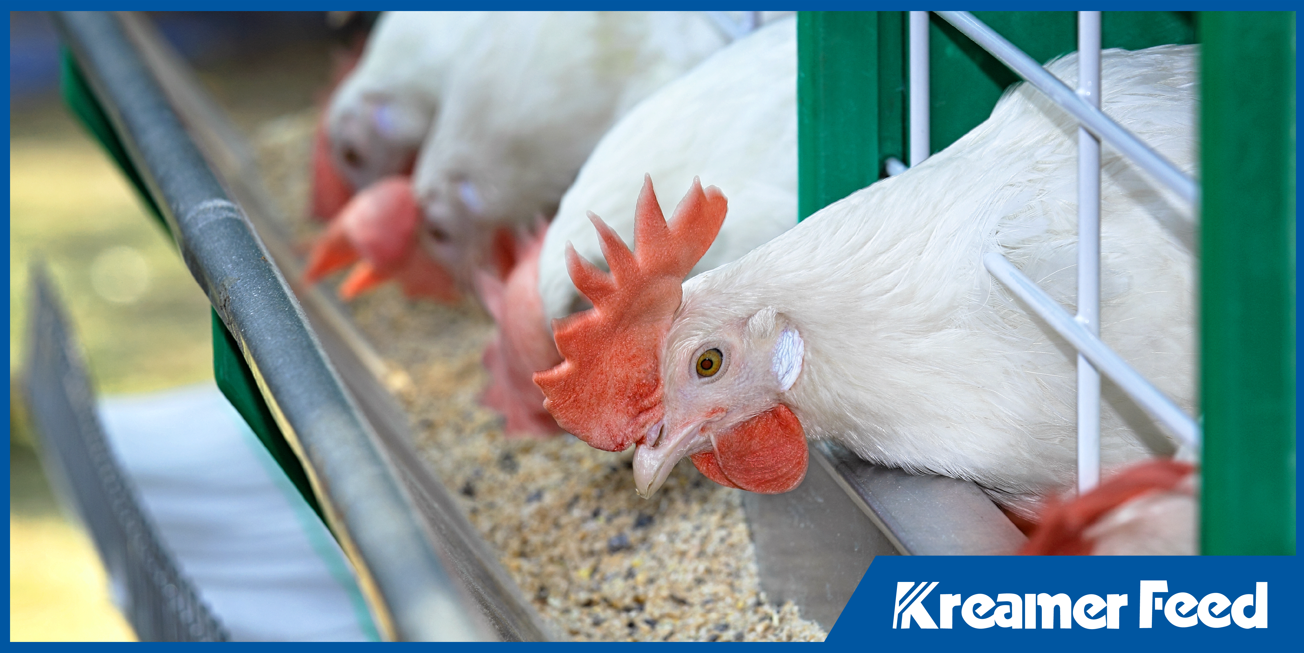
Stress in animals, whether due to environmental changes, transportation, weaning, or illness, can have a significant impact on their health, behavior, and overall productivity. While stress is often unavoidable in livestock management, it can be effectively mitigated through animal stress nutrition management.
A well-balanced diet that includes stress-reducing nutrients and thoughtful feeding practices plays a critical role in protecting animal welfare and performance during difficult periods.
Understanding Animal Stress and Its Impact
Stress in livestock is more than just a temporary discomfort. It can weaken the immune system, slow growth, reduce feed intake, and impair reproduction. Signs of stress may include agitation, aggression, reduced appetite, weight loss, or increased susceptibility to disease.
Common causes of stress include:
- Transportation
- Weaning
- Vaccination or veterinary procedures
- Environmental changes (e.g., extreme temperatures, overcrowding)
- Introduction to new herds or facilities
Managing these stressors with proper nutrition is essential not only for animal welfare but also for maintaining farm productivity and minimizing economic losses.
How Nutrition Helps Ease Animal Stress
Good nutrition is a powerful tool for reducing the negative impacts of stress. Specific dietary components can support the immune system, improve gut health, and stabilize mood and energy levels. When animals receive the right nutrients at the right time, they are better equipped to recover from or adapt to stressors.
1. Energy and Protein Balance
One of the most important aspects of managing livestock stress with diet is ensuring animals receive enough energy and protein. Stressful situations often increase animals’ energy requirements. A feed that is too low in energy or protein may not meet the animal’s elevated needs, leading to poor body condition and slower recovery.
2. Vitamins and Minerals for Resilience
Certain vitamins and minerals can be especially helpful in stress situations:
- Vitamin C: Acts as an antioxidant and helps regulate the stress hormone cortisol.
- Vitamin E and Selenium: Support immune function and reduce oxidative damage during stress.
- Magnesium: Known to have a calming effect and may help reduce nervous behavior.
- Zinc and Copper: Essential for tissue repair and immune support.
Including these nutrients in your feed or supplement plan can reduce the risk of illness and promote recovery during stressful events.
3. Probiotics and Gut Health
Stress can disrupt the balance of gut microflora, leading to digestive upset and reduced nutrient absorption. Adding probiotics or prebiotics to the diet helps restore gut balance, support digestion, and strengthen immune defenses. This is especially important during weaning, after antibiotic use, or during transportation.
4. Electrolytes and Hydration Support
When animals are stressed, especially from heat, illness, or long transport, they may become dehydrated. Electrolyte supplementation helps maintain fluid balance and encourages water intake, which is crucial for metabolic function and recovery.
5. Functional Ingredients and Additives
Modern feed formulations often include nutritional supplements for stress, such as:
- Adaptogens (e.g., ashwagandha or ginseng): Plant-based compounds that may help regulate stress responses.
- Tryptophan: An amino acid that supports serotonin production, promoting calmness.
- Yeast extracts or mannan oligosaccharides (MOS): Known to support gut and immune health.
These functional ingredients can be incorporated into daily feed to support long-term resilience and reduce the physiological impacts of stress.
Feeding Strategies to Reduce Stress
In addition to nutrient content, how feed is delivered also matters. Some feeding practices that help reduce stress include:
- Keeping a consistent feeding schedule
- Ensuring all animals have access to feed (especially in group housing)
- Avoiding abrupt feed changes
- Providing a familiar diet during transitions
These strategies help maintain feed intake and digestive stability, reducing the likelihood of added stress from diet disruptions.
Supporting Health and Wellbeing Through Feed
Stress is an inevitable part of animal agriculture, but its impact doesn’t have to be. By making informed nutritional decisions and using feed as a support tool, farmers and animal caretakers can protect their animals’ health and improve outcomes during challenging periods.
At Kreamer Feed, we’ve been helping farms feed smarter since 1947. Our expertly crafted feeds are designed to support animals during every stage of life, including transitions, recovery, and periods of stress. When health and performance matter, you can trust us to deliver nutrition that works as hard as your animals do.